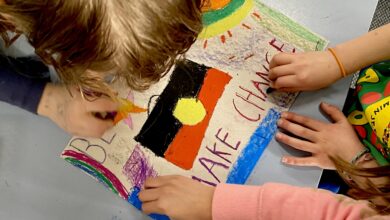Op-Ed: How improving character improves wellbeing
In discussions with teachers, we have repeatedly heard that there is a need for more resources to support the link between character education and wellbeing.
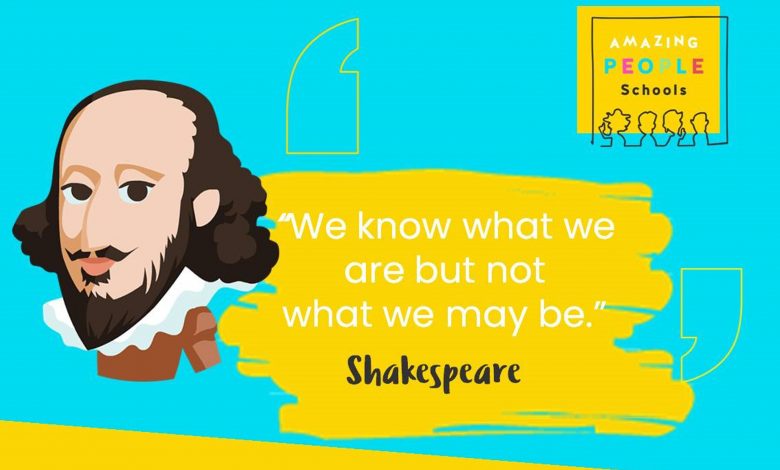
One approach that has proven successful, is to learn from the achievements of influential people from history.
This article is from our Term 3 issue! Check out the full magazine online now or pick up your staff room copy!
In case studies and trials, we have seen students immerse themselves in story-based lessons about the trials and achievements of amazing achievers. Asking students to identify and discuss which character strengths were demonstrated, encourages them to explore characteristics that bolster wellbeing.
As a pivotal exercise in self-development, students are then asked to reflect on abilities, strengths, and weaknesses that they themselves possess. By conducting a self-analysis, students are given the rare opportunity for introspection. Considering how little space exists for such activities in the school curriculum, this offers profound repercussions for character development.
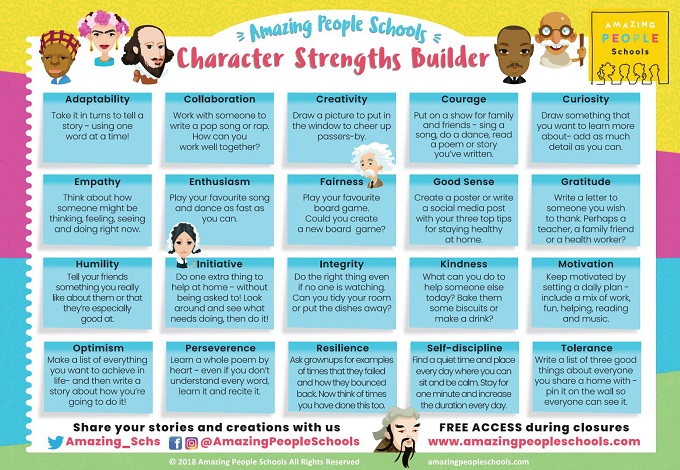
We believe that when people develop their character strengths, they enhance their wellbeing. We base these views on the study of over 500 amazing people who excelled in the fields of: science, mathematics, literature, engineering, music, humanities, visual arts, etc. By developing their character, these inspirational achievers enhanced their own wellbeing and enriched the lives of others.
Action learning to support character development
These theories are put into practice, by encouraging students to take part in self-reflection, discussion, and a range of group activities related to fostering character strengths (mind-maps, Y charts, SWOT analyses, quizzes and presentations, etc.).
We do not claim to provide all the answers when it comes to character development. These case examples reflect subjective and unique experiences for each learner. Instead, this approach is designed to provide inspiring examples and activities, as a catalyst for self-awareness and aspiration.
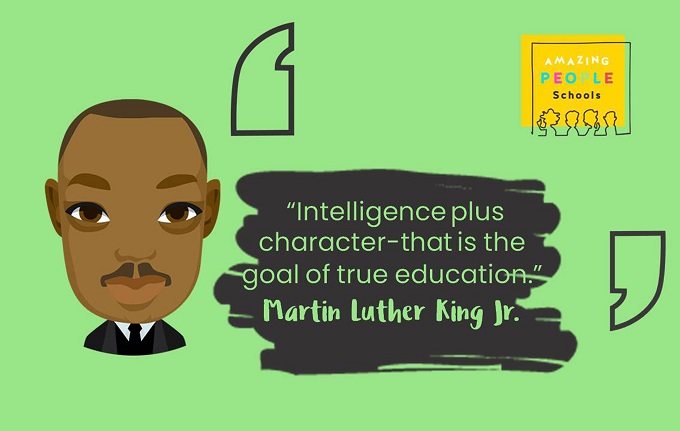
Such activities are certain to make life easier for teachers. Clearly designed lessons, embedding self-development and awareness of character, cultivate respect and positive relationships in the classroom, allowing school dynamics and environments to flourish.
Supporting teachers and fostering wellbeing in the classroom
We know that teaching is a vastly challenging and nuanced role. While the rewards are immense, teachers also face ongoing pressures and demands. Being a role-model does not mean teachers have all the answers, but by taking part in lessons and facilitating wellbeing learning, teachers themselves can grow as life-long learners.

By providing a nurturing classroom where young minds can learn in safety, teachers foster conducive environments for learning and development. As key role-models, teachers can demonstrate good character each day by:
- Presenting arguments for fairness, empathy, and tolerance
- Demonstrating enthusiasm, kindness, and humility towards others
- Creating and setting collaborative tasks that require perseverance and adaptability
- Encouraging curiosity, good sense and creativity during learning, and.
- Applying systems for self-discipline, gratitude, and initiative.
By establishing these elements in the classroom and using character building resources, teachers can help students get to know themselves better. We believe self-aware students are likely to interact with others on a more considerate and productive level, building better relationships.
The saying that ‘happiness is contagious’, has been proven by researchers investigating the contagiousness of smiling (Wild, Erb, Eyb, Bartels & Grodd, 2003). The higher the frequency of positive interactions, the more likely people are to feel happy, healthy, supported and uplifted by those around them. This creates a cyclical effect that can be spread throughout the class, school, and wider community, with wonderful repercussions for society.
Examples from the classroom: case studies with primary school students
Using the Amazing People Schools resource suite, students explored the challenges and achievements of Sir Isaac Newton. Then, they collaborated to vote on his top three characteristics: curiosity, enthusiasm and self-discipline.
When asked what character strengths they could identify in themselves, students listed three each to share. Initially hesitant to list characteristics they could improve upon; students quickly found the ability to self-assess.
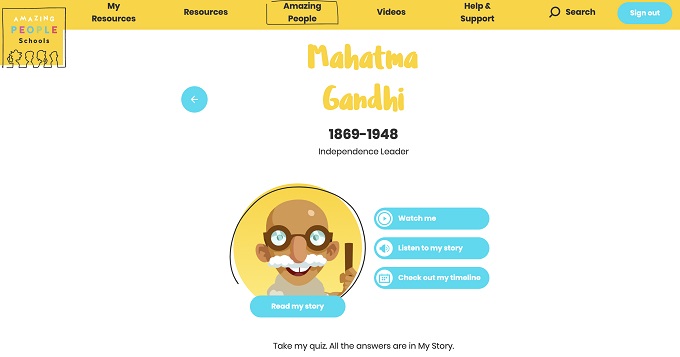
When asked why we should develop these characteristics, one girl replied, “to make me a better person”. When pressed as to why she wanted to be a better person, she responded, “I’ll make people around me happier, and they will be kinder back to me”.
Students were then asked if this discussion about character linked to their wellbeing lessons. All concurred. By improving character, the class agreed, they could improve their wellbeing and the wellbeing of those around them.
Considering happiness is contagious, at Amazing People Schools, we are excited to support students, teachers, and the community as they strive to overcome challenges and seek success on their own amazing journey.


